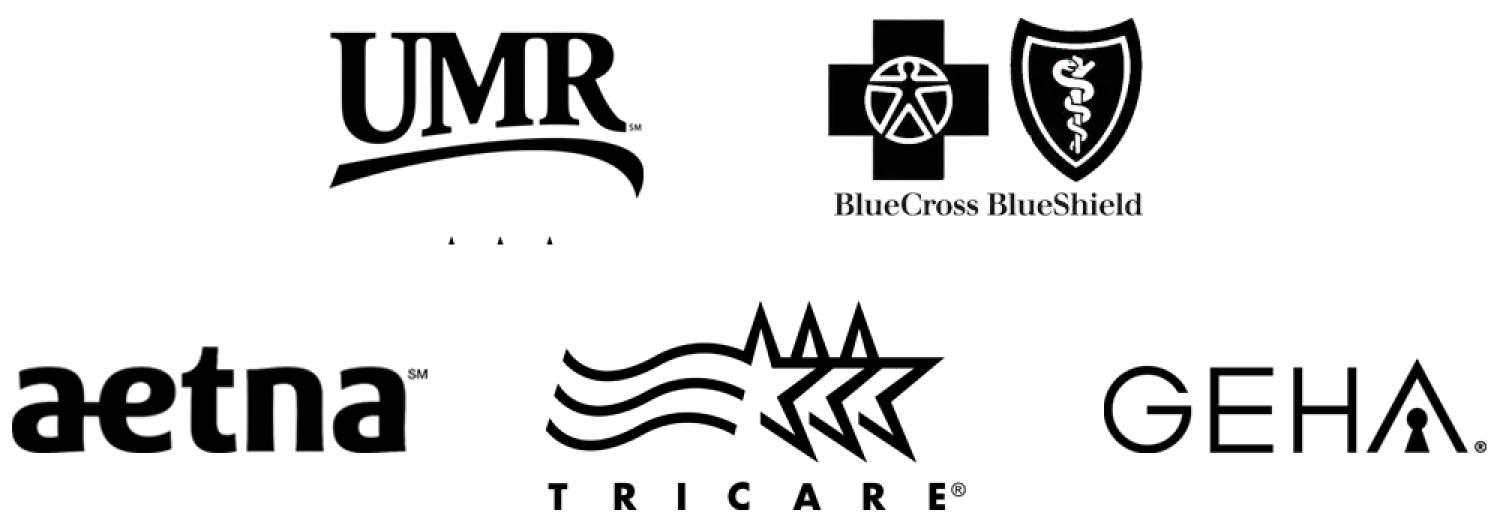Cornerstone
Understanding BCBS Drug Treatment Coverage
Learn about using your BCBS insurance policy to cover substance abuse treatment
Alcohol and Drug Treatment Coverage with BCBS
Dealing with addiction can be challenging for both the person struggling with it and their loved ones.
One of the most overwhelming aspects of seeking treatment is understanding insurance coverage.
Blue Cross Blue Shield (BCBS) is a reputable insurance provider that offers coverage for drug and alcohol treatment.
This guide will help you make informed decisions about your care by providing essential information on BCBS insurance drug treatment coverage.
We will cover topics such as network coverage, claims approval, types of plans, deductibles, and hardships, giving you a better understanding of navigating your BCBS coverage and taking the first steps toward recovery.
Jump to the following sections
View our addiction treatment locations
Addictions we treat at Cornerstone
BCBS drug treatment coverage
In-Network
Out-of-Network
When considering addiction treatment, it’s important to understand the benefits and drawbacks of choosing an in-network provider with your BCBS policy. In-network treatment centers have a contractual agreement with BCBS, which often translates to lower out-of-pocket costs for you. These providers have negotiated rates with the insurance company, resulting in reduced copays, coinsurance, and deductibles. In-network providers have met BCBS’s quality standards, ensuring that you receive appropriate care.
However, the downside is that you may have limited options when selecting a specific treatment center or location. Researching and confirming that the in-network facility offers care and services that align with your needs is crucial.
Using your BCBS policy to choose an out-of-network treatment center has advantages and disadvantages. One of the main benefits is that you have a broader range of facilities, allowing you to prioritize factors such as location, specialization, and treatment philosophy. This flexibility can be especially valuable if you’re seeking a specific type of care or environment that may not be available through in-network providers.
However, the financial implications of going out-of-network can be significant. You may face higher deductibles, copays, and coinsurance rates, and in some cases, you might be responsible for a larger portion of the treatment costs. When considering an out-of-network provider, it’s essential to weigh the potential benefits against the financial impact and discuss your options with BCBS and the treatment center.
Information about BCBS Plan Types
Health Maintenance Organization (HMO)
BCBS’s HMO plans typically require you to choose a primary care physician (PCP) who coordinates your care and provides referrals to specialists when necessary.1
In most cases, HMO plans only cover treatment from in-network providers, except in emergencies.
While HMO plans often have lower monthly premiums and out-of-pocket costs, they offer less flexibility regarding provider choice.
Preferred Provider Organization (PPO)
PPO plans offered by BCBS provide more flexibility than HMO plans.
You can generally receive care from both in-network and out-of-network providers, although choosing an in-network provider usually results in lower out-of-pocket costs.
With a PPO plan, you don’t need to select a PCP or obtain referrals to see specialists.
Exclusive Provider Organization (EPO)
BCBS’s EPO plans combine features of HMO and PPO plans.
Like HMOs, EPO plans typically don’t cover out-of-network care except in emergencies.
However, like PPOs, you usually don’t need to choose a PCP or get referrals for specialist care.
EPO plans often have lower monthly premiums compared to PPO plans.
Point of Service (POS)
POS plans offered by BCBS blend aspects of HMO and PPO plans.2
You’ll need to select a PCP who coordinates your care, but you have the option to see out-of-network providers if you’re willing to pay higher out-of-pocket costs.
Seeing in-network providers or obtaining a referral from your PCP generally results in lower costs.
High Deductible Health Plan (HDHP)
BCBS’s HDHP plans feature lower monthly premiums but higher deductibles than other plan types.
These plans can be paired with a health savings account (HSA) to help cover out-of-pocket expenses.
Once you meet your deductible, your plan starts sharing the cost of covered services.
Medicaid & Medicare Plans
Understanding Policy Terminology
Deductible
Co-Insurance
Out-of-Pocket Max
A deductible is the amount you pay for covered health care services before your BCBS insurance plan starts to pay. For example, if your plan has a $1,000 deductible, you must pay the first $1,000 of covered services yourself.
Once you’ve met your deductible, your insurance will share the cost of covered services according to your plan’s coinsurance or copayment requirements. It’s important to note that some plans may have separate deductibles for in-network and out-of-network care, and not all services may be subject to the deductible.
Co-insurance is the percentage of the cost you pay for a covered healthcare service after you’ve met your deductible. For instance, if your BCBS plan has a 20% coinsurance and you’ve already met your deductible, you’ll pay 20% of the allowed amount for a covered service while your insurance pays the remaining 80%.
Co-insurance percentages can vary depending on the type of service and whether you receive care from an in-network or out-of-network provider.
The out-of-pocket max, or the out-of-pocket limit, is the most you’ll have to pay for covered healthcare services in a plan year. This includes your deductibles, coinsurance, and copayments. Once you reach your out-of-pocket max, your BCBS insurance plan will pay 100% of the allowed amount for covered services for the remainder of the plan year.
Like deductibles, some plans may have separate out-of-pocket limits for in-network and out-of-network care. Understanding your plan’s out-of-pocket max is crucial, as it provides a safety net against high medical costs.
BCBS Approval Process for Treatment
Before beginning addiction treatment, the first step is to verify your BCBS insurance coverage. The treatment center you choose will contact BCBS to confirm your active policy and determine the specifics of your coverage, such as deductibles, copayments, and coinsurance. They will also inquire about any prior authorization requirements for the services you need.
Once your coverage is verified, the treatment center will inform you of any out-of-pocket expenses you may be responsible for, helping you understand what amount you will have to pay (if any) to get treatment. To streamline this process, you can provide your insurance information to the treatment center in advance.
After you receive treatment services, the treatment center will submit a claim to BCBS on your behalf. This is part of the claims process, where the treatment center provides detailed information about the services provided, such as the dates of treatment, the types of services rendered, and the associated costs.
The treatment center’s billing department will handle the claims submission process, ensuring that all necessary documentation is included and the claim is submitted promptly. In most cases, claims are submitted by the treatment center you choose, allowing you to focus on your recovery while they handle the administrative tasks.
Once BCBS receives the claim from the treatment center, they will review it to determine if the services provided are covered under your plan. This process is called adjudication.
During adjudication, BCBS will verify that the services were medically necessary, that an eligible provider provided them, and that they fall within the terms of your coverage. If the claim meets all the necessary criteria, BCBS will approve the claim and proceed with payment.
If your claim is approved during adjudication, BCBS will issue payment to the treatment center according to your plan’s coverage terms. This payment will be made directly to the treatment center, and you will be responsible for any remaining out-of-pocket expenses, such as deductibles, copayments, or coinsurance. The treatment center will then bill you for these remaining costs. Understanding your financial responsibilities before beginning treatment is important to avoid any surprises down the road.
If your claim is denied during adjudication, the treatment center’s billing department will typically file an appeal on your behalf. Treatment centers are well-versed in handling denials and will do their best to ensure that denied services are eventually paid. If necessary, they will gather additional documentation and present a strong case to BCBS for why the denied services should be covered.
It’s worth noting that treatment centers generally strive to provide only those services that are likely to be approved by your insurance, minimizing the risk of denial. However, if a denial does occur, you can trust that the treatment center’s billing department will work diligently to resolve the issue and secure payment for the services you received.
Get Help Paying Your Deductible
File a Hardship With BCBS
If you’re struggling to pay your deductible, you may be able to file a hardship with BCBS. A hardship is a situation that prevents you from being able to afford your medical expenses, such as job loss, unexpected expenses, or a severe illness. To file a hardship claim, you must contact BCBS directly and provide documentation of your financial situation. If approved, BCBS may reduce your deductible or offer a payment plan to help make your treatment more affordable.
Assistance Programs & Payment Plans
Many addiction treatment centers offer assistance programs and payment plans to help make treatment more accessible. These programs may include sliding-scale fees based on income, scholarships, or financing options. Some treatment centers may also have relationships with third-party lenders specializing in providing medical expense loans. When considering a treatment center, ask about any available assistance programs or payment plans to help you manage your out-of-pocket costs.
Community Resources & Charitable Organizations
In some cases, community resources and charitable organizations may be able to help you cover your deductible for addiction treatment. These organizations may include local non-profits, faith-based groups, or foundations dedicated to helping individuals access healthcare services. Some organizations may have specific programs to assist with addiction treatment costs, while others may provide more general financial assistance. It’s worth researching local organizations in your area to see if they offer any help with treatment expenses.
FAQs About Using BCBS Benefits to Pay for Alcohol and Drug Treatment
What types of addiction treatment does BCBS cover?
BCBS, as a leading insurance provider, often includes a variety of addiction treatment services within its health plans, although coverage specifics can depend on the plan, geographic location, and additional factors.
Typically, BCBS plans may cover the following addiction treatment services:
- Detoxification: This crucial first step involves medically supervised detox to safely manage withdrawal symptoms from substance use disorders.
- Inpatient Rehabilitation: Offers 24/7 specialized care and support in a residential treatment facility, incorporating both medical and psychological treatments.
- Outpatient Rehabilitation: Allows individuals to receive treatment services while living at home, including counseling, therapy, and medical care.
- Partial Hospitalization Programs (PHP): PHP provides a balance between inpatient and outpatient care, with intensive treatment during the day and the possibility to return home at night.
- Intensive Outpatient Programs (IOP): Offers extensive outpatient services through a comprehensive range of therapy sessions and related activities.
- Medication-Assisted Treatment (MAT): Combines medications, such as Methadone and Buprenorphine, with counseling to address addiction.
- Therapy and Counseling: Incorporates various therapeutic approaches, like Cognitive Behavioral Therapy (CBT) and family therapy, to tackle the psychological aspects of addiction.
- Aftercare Support: Coverage may extend to post-treatment support, including 12-step programs, sober living arrangements, and relapse prevention strategies.
BCBS policyholders should review their specific plans for detailed coverage information, including costs, network requirements, preauthorization needs, and any limitations on treatment.
For personalized guidance, connecting with a BCBS representative or a healthcare provider can clarify the coverage tailored to individual circumstances.
Will I have to pay a deductible to get into rehab?
Many insurance plans have a deductible that you have to pay before your benefits start covering things.
The amount of that deductible can be different depending on the policy you have.
But don’t let that scare you away from getting the treatment you need!
Let us help you out by checking your insurance.
We can give you the exact details about what your policy covers so you’ll know what to expect.
Will I need to get pre-authorization for addiction treatment?
Depending on the details of your particular policy, you may need to get the green light from BCBS before using your benefits to pay for addiction treatment services.
This step is to make sure that the treatments you want are approved ahead of time.
That way, you’ll know they’re covered before the provider or facility bills you for anything.
How much will I have to pay out-of-pocket for addiction treatment?
Your out-of-pocket costs for addiction treatment will depend on your specific BCBS plan.
Factors impacting your costs include deductibles, copayments, coinsurance, and out-of-pocket maximum.
You may contact BCBS or complete our insurance verification to determine your out-of-pocket expenses.
What happens if BCBS denies my claim for addiction treatment?
If BCBS denies your claim for addiction treatment, your treatment center will likely file an appeal on your behalf.
The appeals process allows the treatment center to provide additional information and argue for why the services should be covered.
If the appeal is successful, BCBS may reverse their decision and provide coverage for the treatment.
Sources
CLINICALLY REVIEWED

Lionel Estrada, LISAC
CLINICAL DIRECTOR
Lionel, our Clinical Director is a Licensed Independent Substance Abuse Counselor (LISAC) with over 4 years at Cornerstone, specializes in addiction and mental health. Trained in EMDR therapy, he employs a trauma-informed, empathetic approach to address the underlying causes of these issues.
- Read our Editorial Policy
Still have questions about treatment?
Our admissions specialists are here to explain the process, answer any questions you may have, and ensure you’re getting the help you need to live a healthy life free from addiction.























